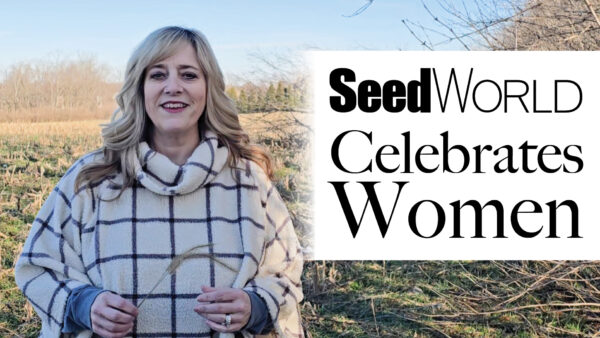NOTE: This feature comes with an accompanying podcast episode. Scroll to the bottom to listen!
Farmers Business Network has come to Canada, and says it’s bringing more transparency to agriculture.
Top Staples remembers fondly the time when he spoke to a Saskatchewan canola grower who had seen canola seed performance analytics provided by Farmers Business Network (FBN) Canada, and said he was ready to change his seed purchase based on it.
There was another instance FBN’s American co-founder Charles Baron recalls, which occurred at a dealer meeting in the U.S., when a seed dealer said farmers were calling to learn more about his company because its seed products were ranking well on the network.
“The corporate folks from the seed company were nervous about FBN, but this farmer dealer stood up and said he was seeing a lot of inbound interest in their products, because farmers had seen them performing well on FBN, which they trust,” says Baron, co-founder of FBN.
“We’re giving farmers a real-world picture on exactly how seeds are yielding locally, which would be best suited for each of a farmer’s fields, and what farmers are actually paying for them in the market. That transparency is really unparalleled and helps growers make better decisions.”
An American company that says it offers farmers a new way of doing business, FBN has come to Canada, setting up a head office in High River, Alta., and recently announced its acquisition of Yorkton Distributors in Saskatchewan — the beginning of what it says will be a distribution network across the West.
According to Staples, general manager for FBN Canada, the acquisition represents an important new era for the Canadian seed and agriculture sectors. FBN allows farmers to anonymously share precision ag data including seed performance, as well as information on what they’re paying for seed and crop protection products. Farmers can also purchase inputs — including seed — directly online from FBN and its partners for which FBN can provide credit access.
“I refer to FBN as the Amazon of the agriculture world,” Staples says. “It’s e-commerce, where you place your order using digital technology and the product arrives at your door. We’re starting to set up that distribution network in Western Canada just like any other retailer. Our acquisition of Yorkton Distributors is the first puzzle piece to that.”
Staples was FBN Canada’s first employee, coming on with the company in November of 2017. Since then, the number of FBN Canada employees has risen to 15. The company says more than two million acres of Canadian farms from across the Prairies and Ontario have joined the network. Farmers pay an annual subscription fee of $800 to access FBN Canada’s information database and crop input pipeline (including seed), and according to Staples, the number of subscribers is growing rapidly.
FBN has existed in the U.S. since 2015. The year prior, Baron and company CEO Amol Deshpande envisioned a data network for American growers, which would use a Silicon Valley approach to giving farmers access to precision ag data that would help them make better operational and business decisions. Since then, FBN has grown to include over 22 million acres of farmland in the U.S. and Canada and over 6,400 farmer members (240 of them in Canada).
The result, Baron and Staples say, is the “democratization” of farm data, giving farmers an unparalleled ability to obtain objective information that will help them make better purchasing decisions and earn more profit.
“FBN is an independent network of farmers. It’s not tied to a retailer or seed company. We don’t represent brands or products. We’re an independent, objective analytics platform and network, as well as an open marketplace and open commerce platform for inputs, including seed,” Baron says.
According to Baron, FBN was founded on seed intelligence. Farmers originally wanted to share with one another their precision ag data on seed performance, something known as crowdsourcing.
“Farmers had been frustrated by the purchasing process in seed, where they have to go to either a retailer, a seed company, or to a university trial for analysis of which seed they should be considering. Each of those sources has its limitations and biases. Farmers couldn’t actually look at what was happening in the real world,” Baron says.
“Our farmer members have created the largest seed analysis platform in existence. We’re able to look at performance data in thousands of soil types, crop rotation patterns, planting dates, soil temperature, fertility programs, weather patterns. You can look at that seed from every angle so a farmer can optimize their own seed selection, placement, and population. It’s hugely powerful for growers.”
FBN Canada’s approach to doing business on the seed side is a little different than its U.S. counterpart. In the United States, an individual seed variety can be sold under multiple brand names by different retailers at different price points, and FBN’s data will reveal which seed products from which brands are genetically identical, and at what prices they’re being sold for.
Because Canada’s seed system forbids multiple companies from selling the same variety of seed — a system Baron calls more “farmer-friendly” than what exists in the U.S. — FBN Canada will instead focus on performance and price analytics, according to Staples.
“It’s not just genetics in the bag that FBN exposes to transparency — there’s that matrix of price and product performance at play. It’s difficult for seed companies to select data on varietal response under different conditions in Western Canada. There’s a limited number of sites that they generally pick to do their trials. Those trials reflect ideal conditions, but don’t reflect where that variety did not perform well,” he says.
“That’s the advantage of aggregated big data — we can expose the performance of these products in every set of conditions relative to where our member base is located. It allows the grower to ask more questions about the variety, where it performs well and where it doesn’t perform well and make a selection relative to their set of conditions.”
Staples says it’s a new way of doing business that might be considered disruptive to the seed industry, but he says there’s no cause for concern.
“FBN is only disruptive to those companies that aren’t able to show the value they’re adding when they sell product. We’re showing how products perform objectively, in a data-centric way, how they’re priced, and other people’s experience with those products,” he says. “We welcome any company large or small who wants to work with us to benefit our farmer members.
“We don’t think about disrupting the industry,” he adds. “We focus on getting growers the information to make the smartest purchases and the the ability to purchasing online, because that’s how farmers can improve their bottom lines.”












